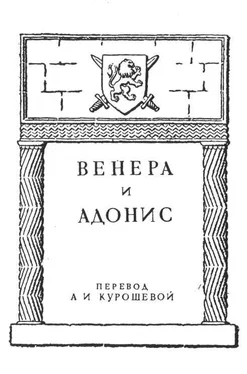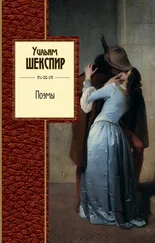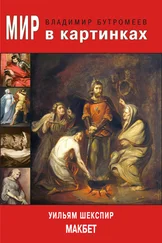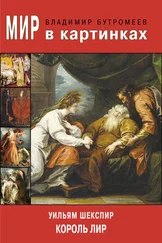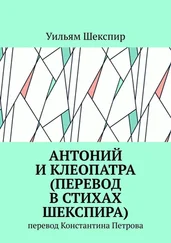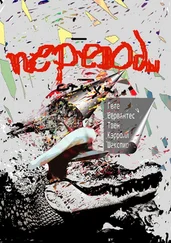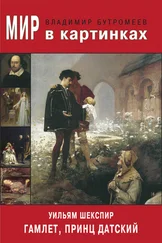'Were I hard-favour'd, foul, or wrinkled-old,
Ill-nurtur'd, crooked, churlish, harsh in voice,
O'erworn, despised, rheumatic, and cold,
Thick-sighted, barren, lean, and lackingjuice,
Then mightst thou pause, for then I were not for thee;
But having no defects, why dost abhor me?
'Torches are made to light, jewels to wear,
Dainties to taste, fresh beauty for the use,
Herbs for their smell, and sappy plants to bear;
Things growing to themselves are growth's abuse:
Seeds spring from seeds, and beauty breedeth beauty;
Thou wast begot; to get it is thy duty.
'Upon the earth's increase why shouldst thou feed,
Unless the earth with thy increase be fed?
By law of nature thou art bound to breed,
That thine may live when thou thyself art dead;
And so in spite of death thou dost survive,
In that thy likeness still is left alive.'
By this the love-sick queen began to sweat,
For where they lay the shadow had forsook them,
And Titan, tired in the mid-day heat,
With burning eye did hotly overlook them;
Wishing Adonis had his team to guide,
So he were like him and by Venus' side.
And now Adonis with a lazy spright,
And with a heavy, dark, disliking eye,
His louring brows o'erwhelming his fair sight,
Like misty vapours when they blot the sky,
Souring his cheeks, cries, 'Fie! no more of love:
The sun doth burn my face; I must remove.'
'Ay me,' quoth Venus, 'young, and so unkind?
What bare excuses mak'st thou to be gone;
I'll sigh celestial breath, whose gentle wind
Shall cool the heat of this descending sun:
I'll make a shadow for thee of my hairs;
If they burn too, I'll quench them with my tears.
'The sun that shines from heaven shines but warm,
And lo! I lie between that sun and thee:
The heat I have from thence doth little harm,
Thine eye darts forth the fire that burneth me;
And were I not immortal, life were done
Between this heavenly and earthly sun.
'Art thou obdurate, flinty, hard as steel?
Nay, more than flint, for stone at rain relenteth.
Art thou a woman's son, and canst not feel
What 'tis to love? how want of love tormenteth?
O! had thy mother borne so hard a mind,
She had not brought forth thee, but died unkind.
'What am I that thou shouldst contemn me this?
Or what great danger dwells upon my suit?
What were thy lips the worse for one poor kiss?
Speak, fair; but speak fair words, or else be mute:
Give me one kiss, I'll give it thee again,
And one for interest, if thou wilt have twain.
'Fie! lifeless picture, cold and senseless stone,
Well-painted idol, image dull and dead,
Statue contenting but the eye alone,
Thing like a man, but of no woman bred:
Thou art no man, though of a man's complexion,
For men will kiss even by their own direction.'
This said, impatience chokes her pleading tongue,
And swelling passion doth provoke a pause;
Red cheeks and fiery eyes blaze forth her wrong;
Being judge in love, she cannot right her cause:
And now she weeps, and now she fain would speak,
And now her sobs do her intendments break.
Sometimes she shakes her head, and then his hand;
Now gazeth she on him, now on the ground;
Sometimes her arms infold him like a band:
She would, he will not in her arms be bound;
And when from thence he struggles to be gone,
She locks her lily fingers one in one.
'Fondling,' she saith, 'since I have hemm'd thee here
Within the circuit of this ivory pale,
I'll be a park, and thou shalt be my deer;
Feed where thou wilt, on mountain or in dale:
Graze on my lips, and if those hills be dry,
Stray lower, where the pleasant fountains lie.
'Within this limit is relief enough,
Sweet bottom-grass and high delightful plain,
Round rising hillocks, brakes obscure and rough,
To shelter thee from tempest and from rain:
Then be my deer, since I am such a park;
No dog shall rouse thee, though a thousand bark.'
At this Adonis smiles as in disdain,
That in each cheek appears a pretty dimple:
Love made those hollows, if himself were slain,
He might be buried in a tomb so simple;
Foreknowing well, if there he came to lie,
Why, there Love liv'd and there he could not die.
These lovely caves, these round enchanting pits,
Open'd their mouths to swallow Venus' liking.
Being mad before, how doth she now for wits?
Struck dead at first, what needs a second striking?
Poor queen of love, in thine own law forlorn,
To love a cheek that smiles at thee in scorn!
Now which way shall she turn? what shall she say?
Her words are done, her woes the more increasing;
The time is spent, her object will away,
And from her twining arms doth urge releasing:
'Pity,' she cries; 'some favour, some remorse!'
Away he springs, and hasteth to his horse.
But, lo! from forth a copse that neighbours by,
A breeding jennet, lusty, young, and proud,
Adonis' tramping courser doth espy,
And forth she rushes, snorts and neighs aloud:
The strong-neck'd steed, being tied unto a tree,
Breaketh his rein, and to her straight goes he.
Imperiously he leaps, he neighs, he bounds,
And now his woven girths he breaks asunder;
The bearing, earth with his hard hoof he wounds,
Whose hollow womb resounds like,heaven's thunder;
The iron bit he crushes 'tween his teeth,
Controlling what he was controlled with.
His ears upprick'd; his braided hanging mane
Upon his com pass *d crest now stand on end;
His nostrils drink the air, and forth again,
As from a furnace, vapours doth he "end:
His eye, which scornfully glisters like fire,
Shows his hot courage and his high desire.
Sometime he trots, as if he told the steps,
With gentle majesty and modest pride;
Anon he rears upright, curvets and leaps,
As who should say, 'Lo! thus my strength is tried;
And this I do to captivate the eye
Of the fair breeder that is standing by.'
What recketh he his rider's angry stir,
His flattering 'Holla,' or his 'Stand, I say?'
What cares he now for curb or pricking spur?
For rich caparisons or trapping gay?
He sees his love, and nothing else he sees,
Nor nothing else with his proud sight agrees.
Look, when a painter would surpass the life,
In limning out a well-proportion'd steed,
His art with nature's workmanship at strife,
As if the dead the living should exceed;
So did this horse excel a common one,
In shape, in courage, colour, pace and bone.
Round-hoofd, short-jointed, fetlocks shag and long,
Broad breast, full eye, small head, and nostril wide,
High crest, short ears, straight legs and passing strong,
Thin mane, thick tail, broad buttock, tender hide:
Look, what a horse should have he did not lack,
Save a proud rider on so proud a back.
Sometimes he scuds far off, and there he stares;
Anon he starts at stirring of a feather;
To bid the wind a base he now prepares,
And whe'r he run or fly they know not whether;
For through his mane and tail the high wind sings,
Fanning the hairs, who wave like feather'd wings.
Читать дальше
